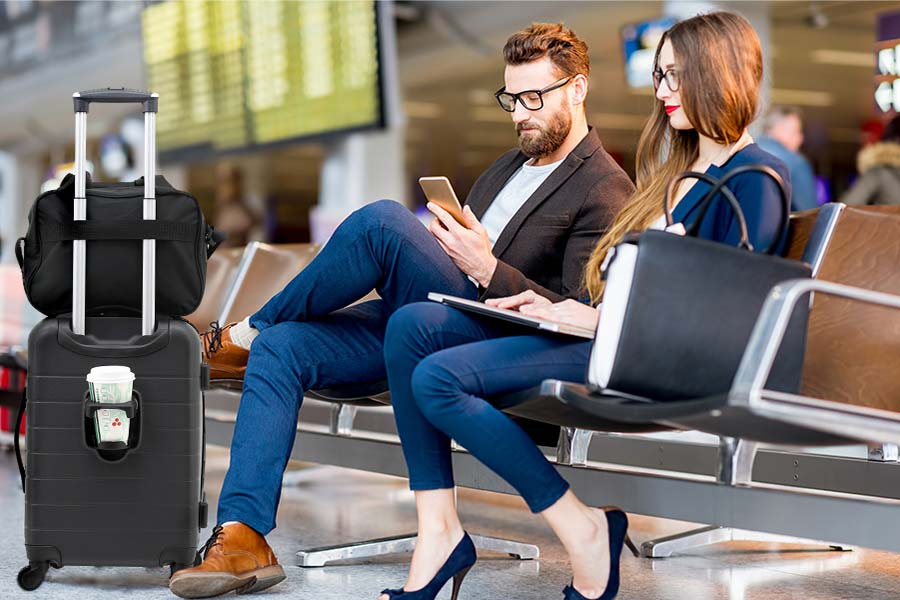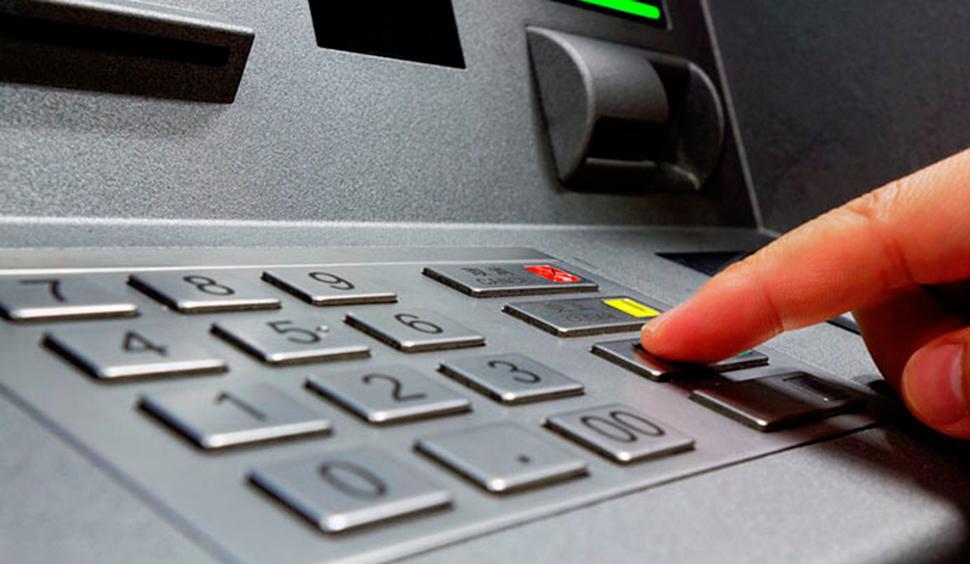Airline change and cancellation fees can sting—sometimes costing more than the ticket itself. Whether your plans shift because of work, weather, or a family emergency, paying up to $200 in fees (and even more for international flights) feels like adding insult to injury.
The reality is you don’t always have to pay. Airlines, credit cards, and a few smart booking strategies can help you avoid or reduce these charges. By knowing your rights, timing your bookings wisely, and taking advantage of flexible policies, you can keep more money in your pocket.

With a little planning and the right approach, changing or cancelling a trip doesn’t have to be stressful—or expensive. These hacks can help you protect your budget and give you more flexibility when travel plans shift.
15 Tips for Avoiding Airline Change and Cancellation Fees
There are plenty of ways to avoid paying expensive airline change and cancellation fees if you know where to look. Some strategies rely on airline policies, others on credit card perks or loyalty programs. Here are 15 proven tips to help you save money when plans change.
Leverage Airline Policies
Airlines each have their own rules when it comes to changes and cancellations. Some offer more flexibility than others, and knowing these policies can save you hundreds of dollars in fees.
1. Cancel Within 24 Hours of Booking
Most major airlines let you cancel for free within 24 hours of purchase. American Airlines requires the ticket to be booked at least two days before departure, while JetBlue and Spirit require at least seven days.
2. Book Refundable or Flexible Tickets
These fares cost more upfront but can save you if your plans are uncertain. Some come with added perks like extra mileage earnings or free checked bags. For example, JetBlue’s Blue Flex fares allow free changes—you only pay the fare difference.
3. Airlines That Don’t Charge Change or Cancellation Fees
Some carriers stand out for flexibility. Southwest Airlines allows free changes and cancellations, with credits issued for Wanna Get Away fares that can be used on future trips. Alaska Airlines waives fees if you cancel more than 60 days before departure. Frontier Airlines offers free changes 90 days out, with smaller fees closer to the departure date.
4. Same-Day Flight Changes at a Discount
Many airlines offer reduced fees if you switch flights on the same day of travel. American, Delta, and United typically charge $75 for this option, which is far less than standard change fees.
5. Free Changes After Flight Schedule Adjustments
If the airline alters your itinerary—such as a significant change in departure or arrival time—you can often change or cancel your ticket without penalty. Always monitor your reservation for updates.
6. Sign Up for Flight Alerts
Signing up for notifications helps you spot schedule changes quickly. If your flight shifts by more than a set threshold, you may qualify for a free change or cancellation. Acting quickly gives you the best chance to rebook before seats fill.
Use Loyalty and Status Benefits
Frequent flyer programs and airline partnerships can unlock extra flexibility when your plans change. Earning elite status or booking with partner airlines often means waived or reduced fees.
7. Earn Elite Status for Waived Fees
Elite members enjoy perks like free changes, cancellations, and priority service. While qualifying for status can take time, some airline credit cards help you earn qualifying miles or dollars faster. For example, JetBlue Plus Cardholders can reach Mosaic status with $50,000 in annual spending.
8. Leverage Airline Alliances and Partner Policies
Airline alliances like Oneworld, Star Alliance, and SkyTeam extend benefits across member carriers. If you hold status with one airline, you may receive reduced fees or more flexible change options when flying with partners in the same alliance.
9. Save Money with Award Ticket Flexibility
Flights booked with airline miles can be easier to cancel or change than paid tickets. While some programs charge redeposit fees, they are usually much lower than standard change fees. In some cases, you can cancel award tickets for free and get your miles back.
Rely on Credit and Insurance Protections
Credit cards and travel insurance can help cover costs when unexpected events force you to cancel or change a flight. These protections often apply when illness, weather, or other covered reasons disrupt your plans.
10. Use Credit Card Travel Protections
Many travel credit cards include trip cancellation and interruption coverage. For example, the Chase Sapphire Preferred covers up to $10,000 per person and $20,000 per trip in non-refundable expenses when you cancel for a covered reason. Marriott Bonvoy and Hyatt cards also provide up to $5,000 per trip in coverage. To qualify, the flight must be purchased with the card.
11. Consider Trip Cancellation Insurance Coverage
Standalone travel insurance can provide broader protection than credit card benefits. Policies vary, but many cover cancellations caused by illness, family emergencies, or severe weather. Be sure to review the policy before buying so you know exactly what is and isn’t covered.
Hacks That Rely on Timing or Creativity
Sometimes the best way to avoid airline fees is to get creative. From contacting customer service to adjusting your travel dates, these strategies can help when other options don’t work.
12. Request a Fee Waiver from the Airline
Airlines sometimes make exceptions if you ask. They often issue waivers for weather disruptions, but they may also show flexibility for medical reasons or family emergencies if you provide documentation. Even without those reasons, it’s worth calling and politely explaining your situation.
13. Contact Airlines Through Social Media
Airlines respond quickly on platforms like Twitter and Facebook because they want to maintain a positive image. A polite message explaining your issue may lead to a waived fee or quicker resolution than calling.
14. Bundle Flights with Hotels and Car Rentals
Booking a flight as part of a travel package can provide added flexibility. Many airlines and online travel sites offer bundle deals with more lenient change and cancellation rules than standalone tickets.
15. Stay Flexible with Your Travel Dates
Shifting your trip by even a day or two can make all the difference. Airlines are often more accommodating when there’s room on alternative flights, especially during off-peak times. Flexibility increases your chances of avoiding a fee altogether.
Final Thoughts
Airline change and cancellation fees don’t have to drain your wallet. By knowing the policies of the airline you’re flying, choosing the right credit card, and taking advantage of loyalty perks, you can often avoid paying extra when plans shift.
Even if none of these options apply, it’s always worth asking the airline directly. Customer service agents sometimes make exceptions, especially if you reach out early or use social media channels.
With the right approach, changing or cancelling a flight can be simple and far less expensive. A little preparation gives you the flexibility to adjust your plans without the stress of unexpected fees.
Frequently Asked Questions
Can I get a refund if the airline cancels my flight?
Yes. If the airline cancels your flight and you choose not to travel, you are entitled to a full refund to your original form of payment, even if you purchased a non-refundable ticket. Some airlines may also offer travel credits, but you do not have to accept them.
Do basic economy tickets allow free changes or cancellations?
In most cases, basic economy tickets do not allow changes or cancellations. Even if the airline has eliminated standard change fees, restrictions on basic economy fares still apply. Always review the fare rules before booking.
How can I avoid cancellation fees on international flights?
International tickets often have stricter rules, but you can still avoid fees by booking refundable fares, using miles for award tickets, or monitoring for schedule changes. Some credit cards with trip protection benefits also cover international travel.
Are same-day standby options cheaper than paying a change fee?
Yes, flying standby can sometimes save you money compared to paying a full change fee. Many airlines allow you to be added to a standby list for a lower cost, though availability depends on how full the new flight is.
Which airlines are the most flexible with changes and cancellations?
Southwest Airlines is the most flexible, offering free changes and cancellations on all fares. Alaska Airlines also has generous policies, especially when cancelling more than 60 days in advance. Frontier offers flexibility if you cancel far ahead of your departure date.




